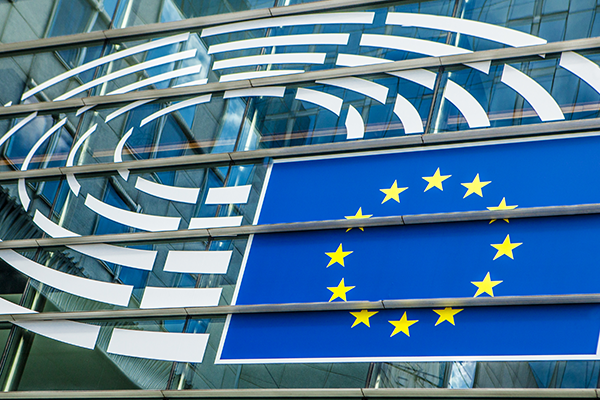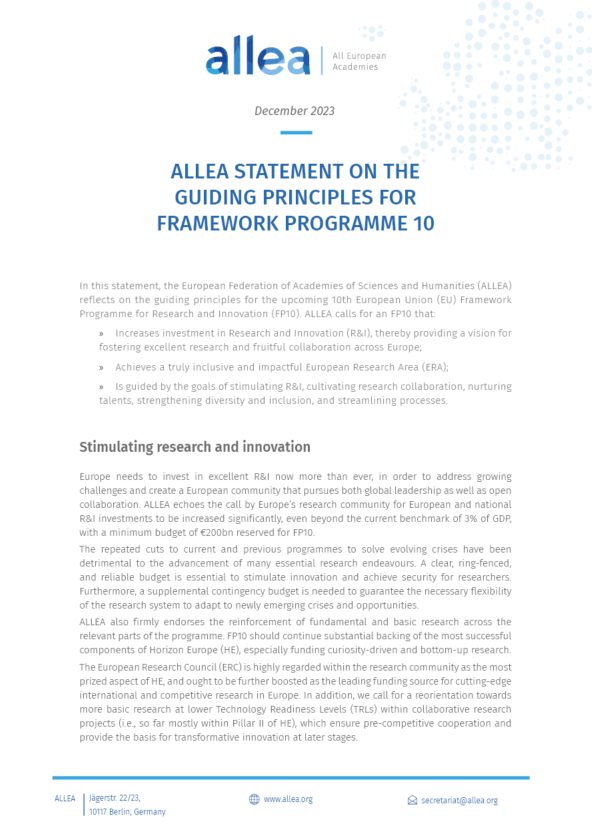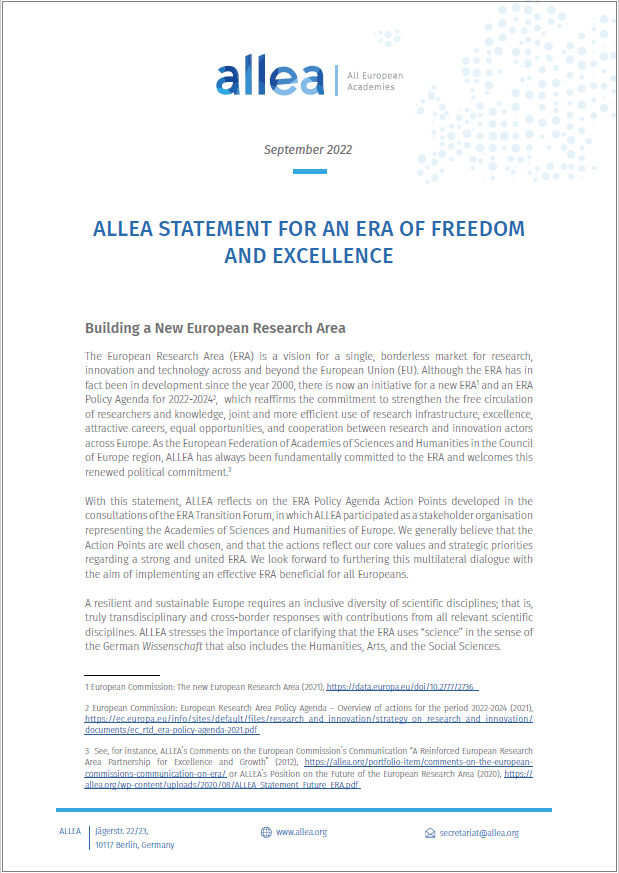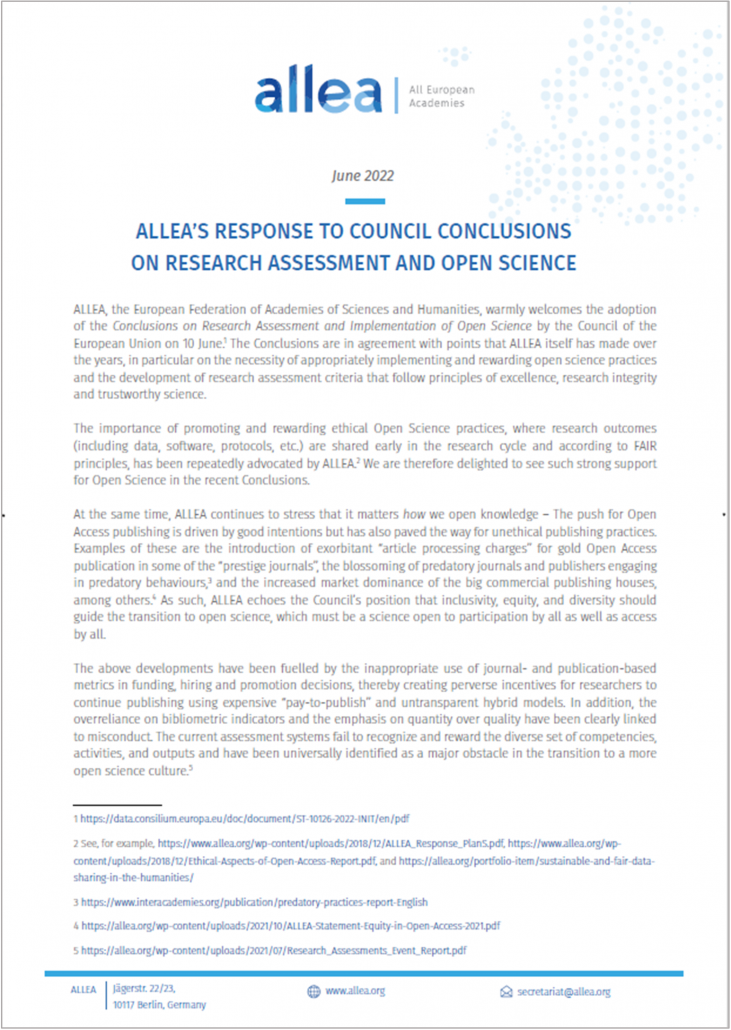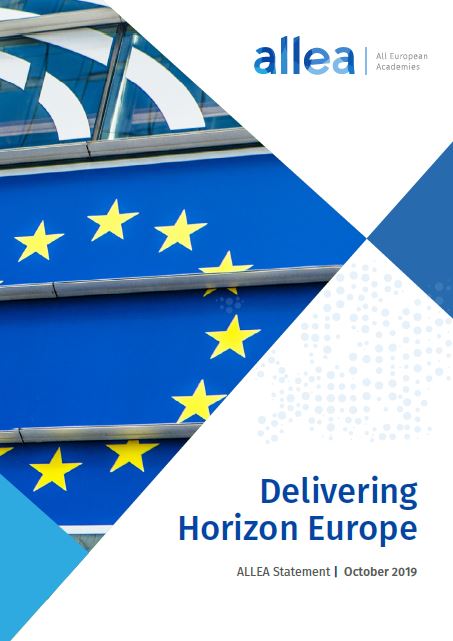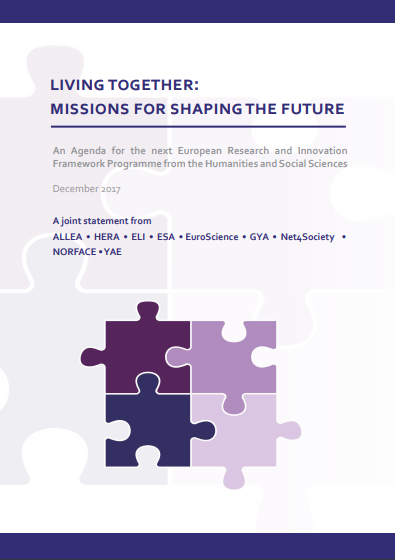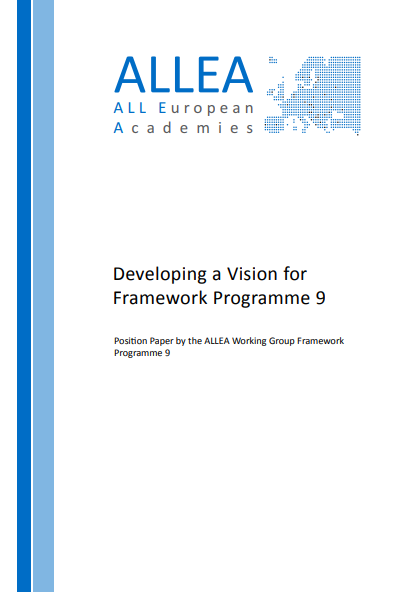Horizon Europe
Towards the next EU Research and Innovation Programme
The world’s biggest challenges, like climate change, artificial intelligence, data governance and many others, are global challenges that cannot be solved at the national level alone. Europe and the European Union therefore provide a unique platform for open and excellent cross-border research funding, complementing national funding schemes.
The European Commission is now moving rapidly towards the finalisation of the next EU Framework Programme, which will define the future of the largest research funding system in the world. Through its Working Group Horizon Europe, ALLEA provides significant input into developing the EU’s proposed framework for research funding within the “Horizon Europe” programme. ALLEA is a recognised and respected interlocutor on all aspects of European Union research funding and continues to make visible contributions on behalf of the European academies.
The Working Group particularly seeks to ensure that any successor research programme to Horizon 2020 is developed with the interests of the “Wissenschafts”-community in mind and provides for full representations of the Social Sciences and Humanities.
Recent activities
ALLEA, via its Working Group, has proposed amendments to the legislation of the Horizon Europe Framework Programme. The detailed comments focus both on the specific wording of the legislative instruments and the policy orientations which underpin them. ALLEA submitted the academies’ input to the European Commission and to the special rapporteurs and other relevant members of the European Parliament. Several of the comments found their way into later drafts, often in conjunction with the contributions of other bodies and science organisations.
Members of the Working Group
- Revd. Professor John Bell, British Academy (Chair)
-
Professor Maarten Prak, ALLEA Board member, KNAW
- Professor Axel Börsch-Supan, Union of German Academies of Sciences and Humanities
- Professor Graham Caie, Royal Society of Edinburgh (UK), former ALLEA Vice President
- Professor Ali Çarkoğlu, Bilim Akademisi (The Science Academy, Turkey)
- Professor Alberto Conte, Turin Academy of Sciences (Italy)
- Professor Marta Estrada, Royal Academy of Sciences and Arts of Barcelona (Spain)
- Professor Ottmar Ette, Union of German Academies of Sciences and Humanities
- Professor Andrea Evers, Royal Netherlands Academy of Arts and Sciences (Netherlands)
- Professor Tibor Frank, Hungarian Academy of Sciences
- Professor Gábor Hamza, Hungarian Academy of Sciences
- Professor Muhamedin Kullashi, Kosovo Academy of Arts and Sciences
- Professor Marcella Frangipane, Accademia Nazionale dei Lincei (Italy)
- Professor Thomas Olechowski, Austrian Academy of Sciences
- Professor Simona Pekarek Doehler, Swiss Academies of Arts and Sciences
- Professor Gevorg Poghosyan, National Academy of Sciences of the Republic of Armenia
- Professor Kerstin Sahlin, Royal Swedish Academy of Sciences
- Professor Birgitta Svensson, Royal Swedish Academy of Letters, History and Antiquities
- Professor Przemysław Urbańczyk, Polish Academy of Sciences
- Professor Krista Varantola, Council of Finnish Academies, ALLEA Vice President
- Professor Didier Viviers, Académie Royale des Sciences, des Lettres et des Beaux-Arts de Belgique (Belgium)


